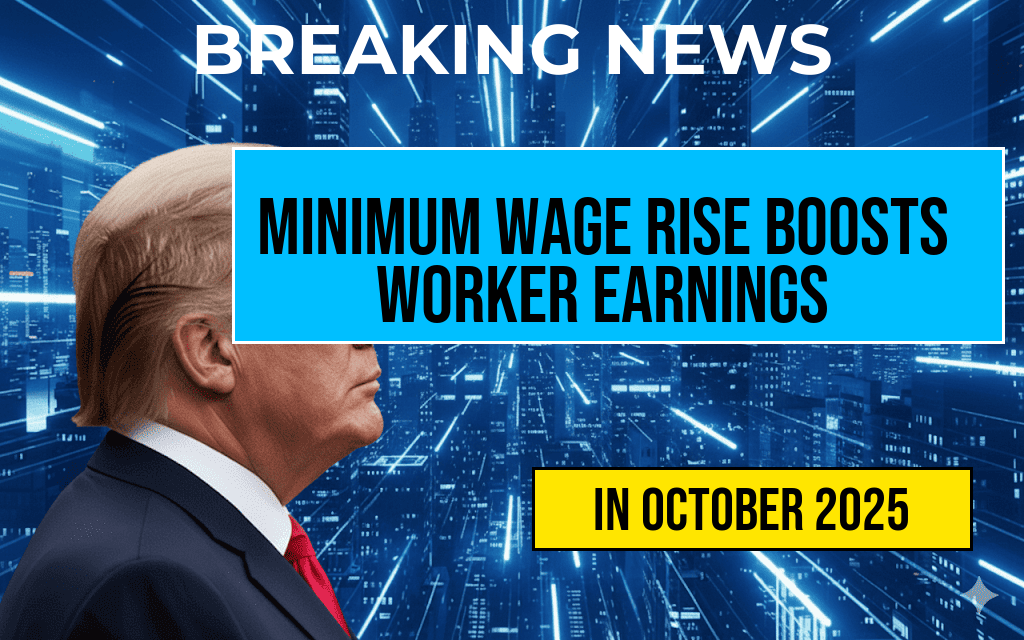The prospect of a government shutdown has raised concerns across various sectors, especially among those relying on SNAP benefits and food stamp assistance. As negotiations in Congress stall over budget agreements, the potential halt of federal funding could disrupt vital nutrition programs that serve millions of Americans. If a shutdown occurs, the U.S. Department of Agriculture (USDA) warns that most SNAP benefits are expected to continue through the end of the month, but the situation may become uncertain if the impasse extends beyond that. For many recipients, this uncertainty threatens to undermine their ability to access consistent food assistance, exacerbating food insecurity during already challenging economic times. Experts and advocacy groups are closely monitoring developments, emphasizing that the immediate impact will depend on the duration of the shutdown and the federal agencies’ contingency plans.
How a Government Shutdown Could Affect SNAP Benefits
Short-Term Continuity and Limitations
According to official guidance, most SNAP recipients will likely see their benefits delivered as scheduled through the end of the month, thanks to existing funds allocated in the current fiscal year. However, the USDA has indicated that if the shutdown persists beyond this period, the flow of benefits could be disrupted. This is primarily because the federal funding that supports SNAP administrative functions and benefit issuance is subject to appropriations, which could be frozen during a shutdown.
Potential Delays and Administrative Challenges
- Benefit Distribution Delays: State agencies responsible for processing SNAP benefits may face delays in issuing new benefits or renewing existing ones.
- Recertification Interruptions: The recertification process—where beneficiaries confirm their eligibility—may be delayed, risking temporary suspension of benefits for some recipients.
- Impact on New Applicants: Individuals applying for SNAP might encounter longer processing times, delaying access to assistance.
Longer-Term Impacts and Risks
Should the shutdown extend beyond a few weeks, the financial stability of many households relying on SNAP could come under severe strain. Without timely benefits, families may face increased food insecurity, which can have downstream effects on health and well-being. Some states may resort to emergency measures, but these are often limited and depend on state budgets and policies.
Federal Funding and State Responsibilities
Funding Mechanisms for SNAP
The USDA funds SNAP through annual appropriations, with benefit issuance typically managed by state agencies. While the benefits are federally funded, states administer the program locally, including processing applications and recertifications. During a shutdown, federal agencies could halt new funding allocations, impacting the ability of states to operate normally.
State-Level Contingency Plans
| State | Contingency Measures | Potential Impact |
|---|---|---|
| California | Utilizes reserve funds for SNAP administration | Minimal disruption expected in the short term |
| Florida | Plans to prioritize existing recipients for benefit renewal | Possible delays in new applications |
| New York | Activates emergency funding protocols | Potential temporary suspension of recertification |
Broader Implications for Food Security
Economic and Health Consequences
Research indicates that disruptions to food assistance programs can lead to increased food insecurity, especially among vulnerable populations such as children, seniors, and low-income families. Without reliable access to nutritious food, recipients may experience declines in health, increased hospitalization rates, and reduced productivity. The ripple effects can also impact local food banks and community organizations that serve as auxiliary support systems.
Advocacy and Public Response
Organizations including Feeding America and the National Urban League have urged Congress to prioritize the funding of essential nutrition programs, emphasizing their role in preventing hunger. Some lawmakers are calling for temporary measures to safeguard benefits, regardless of broader budget disputes, to protect the most vulnerable from immediate hardship.
Looking Ahead: Possible Legislative Solutions
Legislators have introduced several proposals aimed at preventing disruptions to SNAP during a shutdown. These include funding extensions for food assistance programs and emergency appropriations to keep benefits flowing uninterrupted. However, passage of such measures depends on broader negotiations and political consensus, which remain uncertain at this stage.
For more information on SNAP and related policies, resources are available from the Wikipedia page on SNAP and the USDA’s official website FNS SNAP page.
Frequently Asked Questions
What is the impact of a government shutdown on SNAP benefits?
During a government shutdown, SNAP benefits may be temporarily disrupted or delayed, depending on funding allocations. Some recipients might experience delays in benefit issuance, but essential services often continue to provide support.
Will food stamp assistance continue during a shutdown?
In many cases, food stamp assistance programs are considered essential services and may continue to operate temporarily. However, prolonged shutdowns can lead to delays or reductions in support if federal funding is not secured.
How long could SNAP benefits be affected during a government shutdown?
The duration of SNAP benefits disruptions depends on the length of the government shutdown and congressional action. Short-term shutdowns may cause minimal impact, while extended shutdowns could significantly affect benefit distribution.
Are there any measures in place to support food assistance recipients during a shutdown?
Some states and agencies may have contingency plans or reserve funds to support food assistance recipients during a government shutdown. It’s advisable for beneficiaries to stay informed through official channels for updates and assistance options.
What should SNAP recipients do if their benefits are delayed due to a shutdown?
If SNAP benefits are delayed, recipients should contact their local social services offices for guidance. It’s also recommended to check official government websites for updates and potential emergency assistance programs during the shutdown period.






